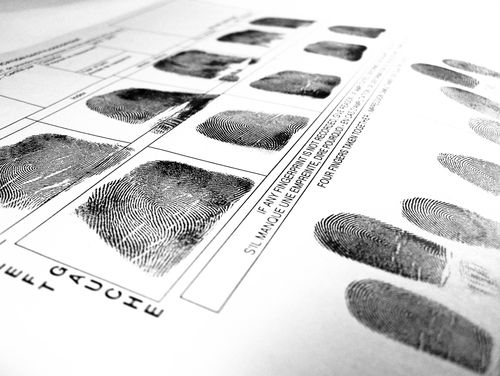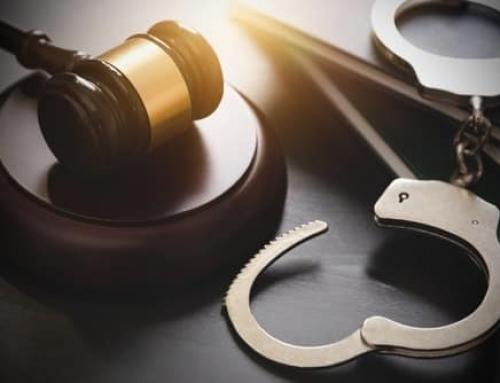A criminal record can have a serious impact on one’s life including the loss of or inability to obtain future employment or financial aid, loss of government benefits, rejection from the college of your choice, or inability to join the military. However, there are a number of diversion programs for first-time offenders of minor offenses that allow you to avoid conviction.
While each county District Attorney’s Office in Pennsylvania has some of its own diversion programs and different requirements to be admitted, this post will focus on those programs available in Philadelphia county. Some of these programs require the defendant to file a petition for expungement following successful completion while others have automatic expungement through the court. It is important that you know the difference as the biggest benefit to all of these programs is that the charges are ultimately withdrawn and can be expunged from your record. But, if there is no automatic expungement, the charges will remain on your record despite the fact that they have been withdrawn. The most common diversion programs in Philadelphia include:
- ARD (Accelerated Rehabilitative Disposition) Program;
- SAM (Small Amount of Marijuana) Program;
- AMP I (Alternative Misdemeanor Program I);
- AMP II (Alternative Misdemeanor Program II);
- Summary Diversion Program;
- Section 17 or Section 18 Drug Program; and
- Drug Treatment Court.
What is a Diversion Program?
A diversion program is an alternative to going to trial where you never have to plead “guilty” or “not guilty” but rather your case is diverted out of the trial track and placed into a pre-trial status where it remains until you successfully complete the requirements of the program. Even though you are often assigned a probation officer to oversee your progress through the program, you have not been convicted of any crime. Upon successful completion of the program, the charges against you are withdrawn or dismissed and can be expunged from your record leaving no evidence that you were ever charged. Common conditions of these programs include community service, paying fines, costs and restitution, drug and alcohol treatment, anger management class, alcohol safe driving class or other classes or seminars, meeting with a pre-trial probation officer, drug testing, and loss of your driver’s license for a short period of time. Each program has different requirements and some may be tailored specifically to your needs. Therefore, it is important that you pay close attention to what the judge orders you to do and follow all of the instructions of your probation officer and lawyer so you can successfully complete the program and have the charges dismissed. Below are additional details on the diversion programs available in Philadelphia.
ARD (Accelerated Rehabilitative Disposition) Program
This is the most common diversion program as it is statutorily created and available in every county in Pennsylvania. It is available to the broadest range of crimes as it is available at the District Attorney’s Office’s discretion. If you have no prior arrests, you are generally eligible for ARD for low-level misdemeanors, including, but not limited to:
- DUI (Driving Under the Influence)
- Theft
- Receiving Stolen Property
- Simple Assault
- Criminal Trespass
- Harassment
- Criminal Mischief
- Terroristic Threats
- Disorderly Conduct
- Bad Checks;
- Retail Theft; and
- Simple Possession of Narcotics or Drug Paraphernalia.
As indicated, the District Attorney decides admission into the ARD Program so there are instances when charged with the above offenses where the facts are more serious and you can be rejected from ARD. On the other hand, you can be charged with more serious offenses, but a closer look at the facts reveals that it may have been overcharged or the defendant has an exemplary background prior to this one indiscretion and the prosecution will grant entry into the program. For example, I have been able to get past clients admitted to Philadelphia when charged with felony forgery, aggravated assault, and robbery.
If you are approved for ARD after being charged with DUI, you will be supervised for 12 months during which you will have to pay fines and costs, complete an alcohol safe-driving class, undergo a drug and alcohol evaluation and comply with any recommended treatment and have your license suspended for 60 days. This last requirement is always the most difficult for clients to swallow. However, if convicted of DUI, you face an automatic one-year license suspension. You also will not be eligible for an Occupational Limited License (OLL) during the 60 day ARD suspension. An OLL, sometimes referred to as a “bread and butter” license, allows those with suspended licenses to drive to and from work only.
When admitted to ARD for other offenses, you will be supervised for 6 to 24 months and will have to comply with various conditions. Depending on the charges, these include payment of fines and costs, restitution to the victim, anger management counseling, community service, and drug and alcohol treatment. Upon completion, you will receive a certificate from your probation officer indicating successful completion of the ARD program and the charges against you will be withdrawn. However, the courts will not automatically expunge or remove the charges from your record. Therefore, you need to contact your attorney to file a petition for expungement.
Every county has a different application procedure for ARD and there is generally a point person in each District Attorney’s Office who decides admission into the program. Therefore, it is important that you have an experienced criminal defense lawyer who knows the procedure, how to fill out the application, and who to communicate with to see that you have the best chance of admission. If you have been charged with a criminal offense and believe you may be eligible for ARD, contact Philadelphia criminal defense attorney Brian M. Fishman for a free consultation.
SAM (Small Amount of Marijuana) Program
If you have been arrested and charged with possession of fewer than 30 grams of marijuana (35 Pa.C.S. § 780-113(a)(31)), you may very well be eligible for the SAM program in Philadelphia. Even if you have a prior criminal record, you can qualify for this program. You will not be eligible if you are charged with possession with intent to deliver marijuana or if you are charged with more serious offenses along with possession of a small amount of marijuana. However, if arrested solely on possession of a small amount of marijuana, you should definitely explore this program as completion results in a withdrawal of the charges. If admitted into the SAM program, you will likely be required to attend a three-hour class on a Saturday at the Philadelphia Criminal Justice Center and pay a fine of $200. So long as you attend the class and pay the fine, the charges against you will be withdrawn and automatically expunged off of your record.
AMP I and II (Alternative Misdemeanor Program)
If charged with a non-violent misdemeanor offense, similar to the charges listed above (with the exception of DUI), you may be eligible for the Alternative Misdemeanor Program. You can even have some prior arrests/convictions and still be eligible for the AMP program. It is a bit more rigorous than the SAM program but less intense than ARD.
If accepted into AMP I, you do not have to enter a plea and will be required to complete 12 to 18 hours of community service and pay approximately $200 in court costs. A criminal defense attorney must apply for the AMP program through the District Attorney’s Office who will accept or reject you. If you provide proof of completion of community service and payment of costs more than five days before your final court date, your presence can be waived, the charges will be withdrawn by the District Attorney’s Office and you can file for expungement of the charges.
If you apply and are accepted into the AMP II program, you will have to enter a “no contest” plea before a Municipal Court judge. A “no contest” plea means that you are not admitting that you committed the acts but you are also not challenging the allegations. The judge will not make a determination of guilt but rather will hold his ruling in abeyance. In addition to the above community service and court cost requirements, you must either complete an anger management class or drug and alcohol treatment. The requirements will be fashioned around your past record and the instant offense. If you complete all requirements, the District Attorney will withdraw the charges and you will be eligible for expungement. On the other hand, if you fail to successfully take advantage of the program and violate the conditions, the judge can enter a guilty finding and place you on probation. At that point, the charges will be on your permanent record.
Summary of the Diversion Program
The requirements and process of the Summary Diversion Program are similar to the SAM Program discussed above. If you have been cited for a summary offense, the most common of which are underage drinking, defiant trespass, open container, and disorderly conduct, you may be eligible. Even if you have some minor prior contacts with the criminal justice system, you may qualify for the program. If your criminal defense attorney can have you enrolled, it is an excellent opportunity to wipe the slate clean. You will have to attend a three-hour class at the Criminal Justice Center on a Saturday and pay costs in the amount of $200. However, if you successfully complete those two minor requirements, the charges will be withdrawn and the matter will automatically be expunged off of your record.
The greatest benefit of this program is for those charged with underage drinking as a conviction for this summary offense results in your driver’s license being suspended. However, for first-time underage drinking offenders, the District Attorney’s Office in Philadelphia has agreed to amend the charge to disorderly conduct when reporting the matter to PennDOT (Pennsylvania Department of Transportation) so you will avoid a license suspension. You can only take advantage of this opportunity once. Although you may be allowed in the Summary Diversion Program for a future underage drinking offense, you will be subject to a license suspension regardless of your successful completion of the program.
If your attorney can not get you in this program and you are convicted of the offense, you are eligible for expungement of a summary offense in Pennsylvania after five years have passed so long as you have had no contacts with the criminal justice system during that time period.
Section 17 or 18 Drug Program
These programs are not utilized as much since the introduction of the SAM and AMP programs. However, under the drug laws of Pennsylvania, if you are charged with possession of narcotics or a crime that stems from a drug problem, such as prostitution or retail theft, you may be eligible for Section 17 or Section 18. Similar to AMP II, you enter a “no contest” plea before a judge and the judge defers adjudication. However, like ARD, you are placed on a period of probation between 6 and 12 months with the requirements to pay court costs, undergo random drug testing, and complete drug and alcohol treatment. If you complete the probationary period, complying with the above conditions, the charges will be withdrawn. However, if you are arrested again, continue to test positive for drugs, or do not comply with treatment, the judge, without the benefit of a trial, will enter a guilty finding to the misdemeanor offense and you will be placed on probation or can receive a period of incarceration. Upon successful completion, these charges are not automatically expunged but rather you must have a criminal defense attorney file a petition for expungement to see that your record is cleared.
Drug Treatment Court
Philadelphia’s Drug Treatment Court was the first of its kind in Pennsylvania. It is by far the most rigorous of all the diversion programs discussed. However, in exchange for that rigor, it provides individuals charged with felony possession with intent to deliver (PWID) charges the opportunity to avoid conviction. Generally, if you have prior convictions or are facing PWID charges that call for a mandatory minimum sentence, you will not qualify for the program. It is designed to assist those who sell to support a drug habit. Admission is at the discretion of the District Attorney’s Office and therefore your attorney must apply on your behalf and you must undergo a drug and alcohol evaluation. If you qualify, you will be assigned a probation officer and a caseworker. The program is broken down into phases and you must complete all phases to graduate and have the charges against you withdrawn. You will be required to attend intensive outpatient drug treatment, receive random drug screens, meet with your probation officer, pay court costs, discuss all issues with your caseworker, including housing, mental health, employment, and drug and alcohol problems. Violation of any condition can result in removal from the program or sanctions such as demotion to a lower phase, attending court proceedings, more intense treatment, or even short prison terms, lasting between a weekend and ten days. The more violations, the longer it will take to complete the program, which already takes a minimum of 18 to 24 months. Graduation is a great accomplishment and one that is celebrated in the courtroom with a ceremony, plaque, pictures with the judge, staff, and other graduates, and an invitation to speak to future participants. Perhaps most important, felony drug charges are withdrawn and expunged off of your record.
If you have been cited for a summary offense, arrested for a misdemeanor or felony PWID, you may be eligible for one of the diversion programs discussed above. The best way to avoid a conviction is to never go to trial and gain entry into one of these pre-trial programs. Contact Philadelphia criminal defense attorney Brian M. Fishman today for a free consultation concerning your eligibility for one of these programs or how best to defend against criminal charges.






